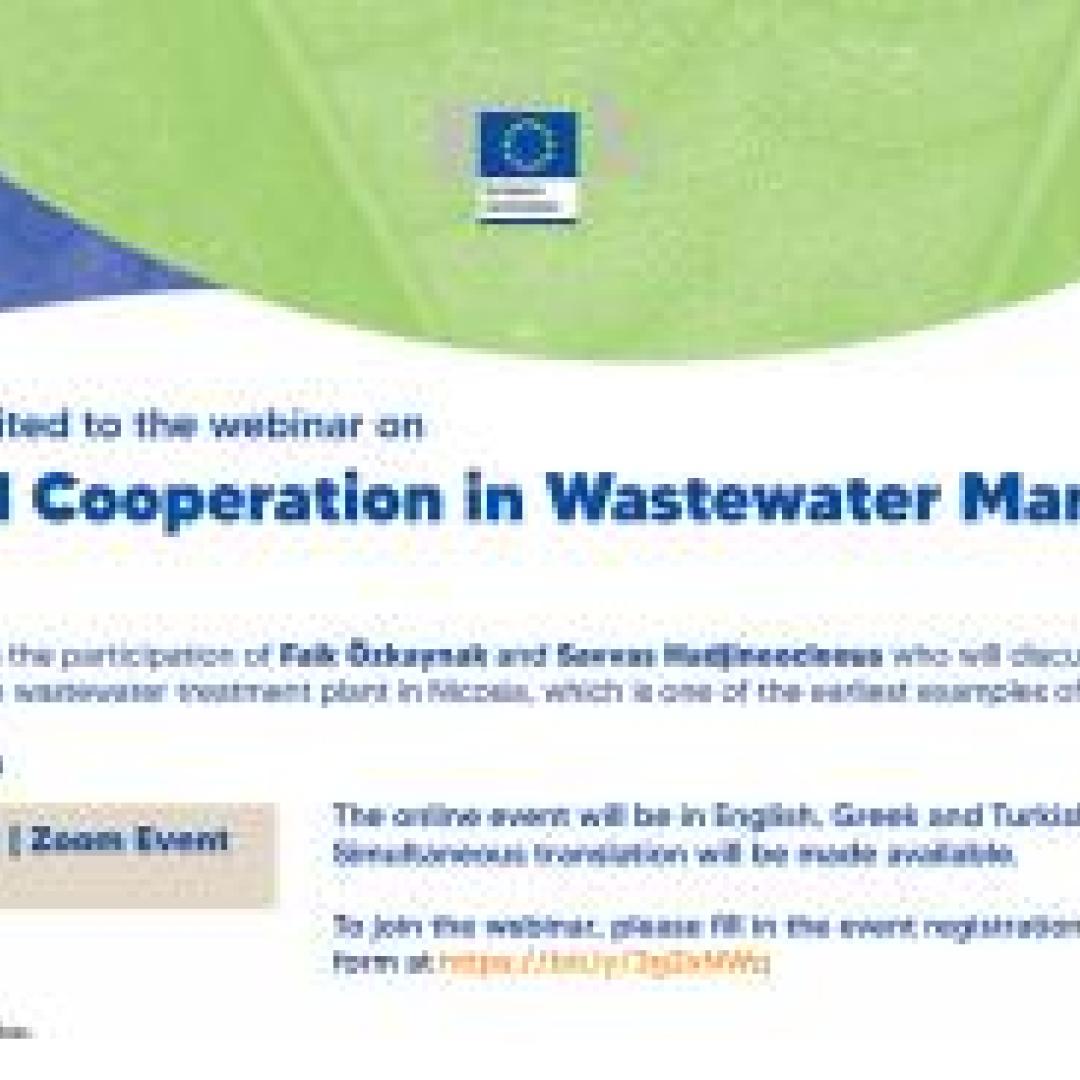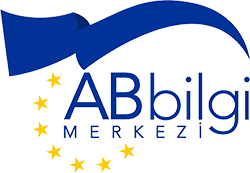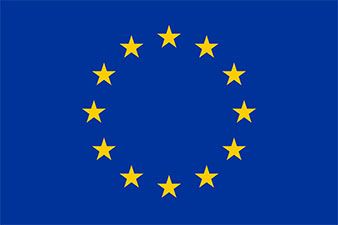BICOMMUNAL COOPERATION IN WASTEWATER TREATMENT

The European Commission organised a webinar on Thursday, July 29, 2021 on the topic of “Bicommunal Cooperation in Wastewater Management” where wastewater management in Nicosia from the past to the present was discussed. During the Zoom webinar, the importance of bicommunal efforts and the EU's support in protecting the environment in Cyprus were highlighted. It was also broadcasted live on EU Infopoint’s Facebook Page.
https://www.facebook.com/ABBilgi/videos/843452396563202/
In his opening remarks, Alain Joaris, Head of Cooperation, European Union Programme Support Office, expressed the importance of wastewater management for protection of environment and said: “Modern environmental infrastructure is very important. Developing and strengthening the environmental infrastructure is among the specific objectives of the EU Aid Programme for the Turkish Cypriot community. Under the EU Aid Programme more than €120 million has been allocated to improve the community’s water and wastewater infrastructure. Within the scope of this support, there are many successful project implementation examples in the fields of wastewater and water supply. Environment will continue to be a key sector under the EU Aid Programme, also in line with the overall priorities of the European Union.”
In Cyprus, wastewater management has been at the core of bicommunal cooperation between the two communities of Nicosia since 1960s. During the webinar, Faik Özkaynak, the former Head of Sewerage Department and Savvas Hadjineocleous, the Technical Director of Nicosia Sewerage Board, who were actively involved in the sewerage project that connects the two halves of Nicosia, talked about their experience throughout the process. As part of his speech Mr. Özkaynak said, "the foundations of working together on sewage was laid in late 1970s based on mutual understanding, yielding many successful projects and setting a great example of bicommunal cooperation. Since we share the same environment, all environmental problems affect both communities of Nicosia. Although it is a mandatory task to solve environmental problems, the sewerage organisations of both communities have been fulfilling this task with a wholehearted team spirit”.
Mr. Hadjineocleous reiterated the importance of cooperation and stated that “despite the difficulties of our situation, we are committed to finding solutions for the benefit of both communities and the environment. Since late 1970s, the sewerage entities in the Greek Cypriot and Turkish Cypriot communities of Nicosia are cooperating, with the support of the European Union and the United Nations, in addressing everyday needs, solving problems and building a better and healthier future for Nicosia’s inhabitants.”
Following the Q&A section in which questions of the audience were answered by the speakers, the webinar ended with a general assessment made by the environmental engineer Doğuç Veysioğlu, who served as the moderator.

